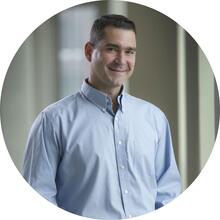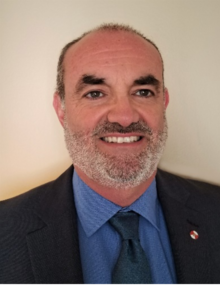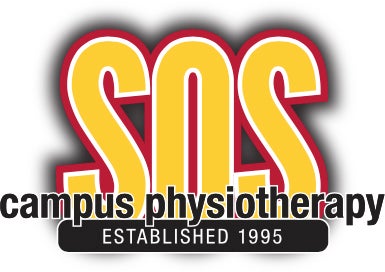The Daily Bulletin is published by Internal and Leadership Communications, part of University Communications
Contact us at bulletin@uwaterloo.ca
Submission guidelines
Editor:
Brandon Sweet
University Communications
bulletin@uwaterloo.ca

For many of us, navigating information on COVID-19 is increasingly difficult as the pandemic – and the science behind the pandemic – evolves over time and as the information available grows. With so much information at our fingertips, it can be hard to work out what’s real, and what’s not.
We asked some leading Waterloo experts to help sort through some common misinformation and myths on the pandemic and give us the latest facts. Our experts cover issues from transmission of the virus, the side effects of vaccination and the legalities of vaccine mandates.
 The responses below are provided by Dr. Zahid Butt, a physician, epidemiologist, and assistant professor in the School of Public Health Sciences. His research focuses on the prevention and control of infectious diseases, especially in the context of marginalization and social disparities.
The responses below are provided by Dr. Zahid Butt, a physician, epidemiologist, and assistant professor in the School of Public Health Sciences. His research focuses on the prevention and control of infectious diseases, especially in the context of marginalization and social disparities.
Myth: Children and young people do not contract or spread COVID-19.
Fact: A person of any age group can contract or spread COVID-19 infection. Younger age does not protect against COVID-19 infection and children and younger people can spread COVID-19. We have seen multiple outbreaks among children in school settings as well as establishments and workplaces where younger people were working. The only way to protect yourself from COVID-19 is to follow public health guidelines such as physical distancing, wearing masks, frequent hand sanitization and getting vaccinated.
Myth: Natural immunity is better than immunity provided by vaccines.
Fact: Currently, there has been very limited research that documents whether natural immunity against COVID-19 provides better immunity than vaccines. Given the limited evidence about natural immunity against COVID-19 and the fact that contracting COVID-19 can lead to serious consequences such as severe disease and death, it is not advisable to contract COVID-19 to acquire natural immunity. In addition, COVID-19 infection may also lead to developing long COVID-19 which is a long-term serious consequence of COVID-19 infection.
 The responses below are provided by Kelly Grindrod, an associate professor at Waterloo’s School of Pharmacy and a licensed pharmacist. Grindrod has spearheaded mass vaccination efforts in the Region. Her research focuses on using digital technologies to improve how we manage medications.
The responses below are provided by Kelly Grindrod, an associate professor at Waterloo’s School of Pharmacy and a licensed pharmacist. Grindrod has spearheaded mass vaccination efforts in the Region. Her research focuses on using digital technologies to improve how we manage medications.
Myth: The side effects of the COVID-19 vaccine are worse than the virus.
Fact: No, a new study published in the New England Journal of Medicine highlighted that the BioNTech-Pfizer mRNA vaccine is much safer than a COVID infection. The study looked at data for over 1.7 million Israelis, including over 880,000 who had received the vaccine. Researchers found that for every 100,000 people who had tested positive for COVID, 166 developed an arrhythmia, 125 developed kidney failure, 62 had a blood clot in the lung, 43 had a peripheral blood clot (e.g., lower leg), 25 had a heart attack, and 8 had a bleed in the brain. The vaccine was not associated with any of these effects. We have also been paying close attention to the risk of heart inflammation (myocarditis) with the vaccine after initial reports of this rare side effects, especially in teen boys and young men. This study found that people infected with COVID were over three times more likely to have myocarditis compared to the vaccine. Finally, for every 100,000 people vaccinated, rare side effects included 78 people with swollen lymph nodes, 16 with shingles, and 5 with appendicitis.
Myth: Vaccines impact fertility.
Fact: There is no evidence that the vaccines have any impact on fertility. In the clinical trials, people who were pregnant or who were planning to become pregnant were excluded but some people did become pregnant unintentionally. There were similar numbers of pregnancies in the placebo and vaccine arms of the trials. In fact, the Society of Obstetricians and Gynecologists of Canada recommend that people get vaccinated before pregnancy. This helps to ensure that people who are pregnant have the benefit of full immunity for the duration of their pregnancy.
 The response below is provided by Roderick Slavcev, an associate professor at the School of Pharmacy and a member of the Waterloo Institute for Nanotechnology. His research focuses on novel bacteriophage nanomedicines for the development of novel vaccine, pharmaceuticals and gene delivery systems.
The response below is provided by Roderick Slavcev, an associate professor at the School of Pharmacy and a member of the Waterloo Institute for Nanotechnology. His research focuses on novel bacteriophage nanomedicines for the development of novel vaccine, pharmaceuticals and gene delivery systems.
Myth: There is no additional benefit to getting vaccinated if you’ve already had COVID-19.
Fact: Individuals inoculated only through previous SARS-CoV-2 infection alone are generally less protected against reinfection by a variant and increased susceptibility to SARS-CoV-2 infection or severity of COVID-19. Infection differs among individuals and protective levels of neutralizing antibody may vary dramatically and wane quickly over time. Newer compelling data suggest that variable outcomes are in part linked to genetic predisposition, explaining global variation of susceptibility and severity.
The mRNA COVID-19 vaccines are focused on generating neutralizing antibodies against the spike protein and particularly (Pfizer) receptor binding domain of SARS-CoV-2, thereby blocking viral entry into target cells. This focused response and repeated dose builds targeted affinity of these neutralizing antibodies to the spike, improving neutralizing antibodies against this component of the virus. This improves levels of protective neutralizing antibodies against the virus that can even be cross-protective against variants.
 The responses below are provided by Emmett Macfarlane, an associate professor in the department of Political Science at Waterloo. His research focuses on the intersection of rights, governance and public policy, with a particular emphasis on the Supreme Court of Canada’s impact on public policy and political discourse under the Charter of Rights and Freedoms.
The responses below are provided by Emmett Macfarlane, an associate professor in the department of Political Science at Waterloo. His research focuses on the intersection of rights, governance and public policy, with a particular emphasis on the Supreme Court of Canada’s impact on public policy and political discourse under the Charter of Rights and Freedoms.
Myth: Institutions and companies can’t legally mandate vaccines.
Fact: In fact, institutions and companies may have a legal obligation to establish vaccine mandates. Institutions and companies are required by law to take all reasonable measures to protect the health and safety of employees, members, customers and others. In the context of the COVID-19 pandemic, this includes reasonable measures such as masking and distancing requirements, vaccine mandates and work-from-home accommodations (where possible).
Myth: Vaccine mandates violate the Canadian Charter of Rights and Freedoms.
Fact: Properly crafted vaccine mandates that include exceptions for people with (very rare) medical circumstances that prevent them from getting vaccinated would be upheld as reasonable under the Charter. All rights under the Charter are subject to "reasonable limits" that can be justified in a free and democratic society. A pandemic is precisely the sort of circumstance for special measures to protect the health and safety of the community. More significantly, the Charter of Rights does not include the right to put other people at risk, or the right to a particular job or access to spaces. Those who refuse to get vaccinated can be subject to limitations in this regard.
When seeking out information about COVID-19 and vaccines, be sure to use trusted and reliable sources that are backed by science, data and research. For additional information on myths and misinformation about COVID-19, review the trusted resource list below.
Dr. Zahid Butt sets the record straight on some COVID-19 misinformation. Listen to his interview on the Beyond the Bulletin Podcast.
Professor Claudio Cañizares has been appointed the Executive Director of the Waterloo Institute for Sustainable Energy (WISE), for a term running from August 1, 2021 to July 31, 2026.
 "Dr. Cañizares, who has been a professor at the University of Waterloo since 1993, holds the Hydro One Endowed Chair in the Department of Electrical and Computer Engineering. His research focuses on modeling, simulation, computation, stability, control, and optimization of power and energy systems and he has partnered with governments, industries and academic institutions on various projects and initiatives in this field," wrote Vice-President, Research and International Charmaine Dean in a memo circulated to the University's Executive Council. "He is currently the Editor-In-Chief of the Institute of Electrical and Electronic Engineering (IEEE) Transactions on Smart Grid; the Director-Elect to the IEEE Power and Energy Society (PES) Board; a Fellow of the IEEE, the Royal Society of Canada, and the Canadian Academy of Engineering. He is also the recipient of the 2017 IEEE PES Outstanding Power Engineering Educator Award, the 2016 IEEE Canada Electric Power Medal, and other IEEE PES Technical Council and Committee awards and recognitions."
"Dr. Cañizares, who has been a professor at the University of Waterloo since 1993, holds the Hydro One Endowed Chair in the Department of Electrical and Computer Engineering. His research focuses on modeling, simulation, computation, stability, control, and optimization of power and energy systems and he has partnered with governments, industries and academic institutions on various projects and initiatives in this field," wrote Vice-President, Research and International Charmaine Dean in a memo circulated to the University's Executive Council. "He is currently the Editor-In-Chief of the Institute of Electrical and Electronic Engineering (IEEE) Transactions on Smart Grid; the Director-Elect to the IEEE Power and Energy Society (PES) Board; a Fellow of the IEEE, the Royal Society of Canada, and the Canadian Academy of Engineering. He is also the recipient of the 2017 IEEE PES Outstanding Power Engineering Educator Award, the 2016 IEEE Canada Electric Power Medal, and other IEEE PES Technical Council and Committee awards and recognitions."
Cañizares holds a PhD (1991) and an MSc (1988) in electrical engineering from the University of Wisconsin-Madison, and a bachelor’s degree from the Escuela Politécnica Nacional in Quito-Ecuador.
As Executive Director, Dr. Cañizares will foster WISE’s role in advancing Waterloo’s sustainability goals and in the national and global battle to address the existential climate crisis. Working with the WISE community, he aims to support diverse, inclusive, and interdisciplinary academic collaborations; promote and support environmental, economic, policy, and social initiatives and projects; and strengthen existing collaborations and form new partnerships with government, industry, and other relevant organizations in Canada and internationally.
"I would like to thank Dr. Jatin Nathwani for his service and leadership as the inaugural and previous Executive Director of WISE," writes Dean. "At an upcoming townhall we will have the opportunity to celebrate Dr. Nathwani’s outstanding contributions to the development of WISE, and to welcome Dr. Cañizares."
"I would also like to thank members of the WISE nominating committee and WISE management board (Dr. Jean Andrey, Dr. Kankar Bhattacharya, Dr. Giovanni Cascante, Dr. Bernard Duncker, Dr. Maurice Dusseault, Dr. Bruce Frayne, Dr. Ranjini Jha, Dr. Bob Lemieux, Dr. Tamer Ozsu, Dr. Paul Parker, Neil Randall, Dr. Sivabal Sivaloganathan and Dr. Mary Wells) for their work with me on this selection process."
"Please join me in congratulating Dr. Cañizares on his new role."

Alex Pastrik from the Dean of Engineering Office snapped this pic of a rainbow over campus yesterday morning.
W Store | Course Materials + Supplies and W Store | Gifts + Apparel are open for in-store shopping in South Campus Hall with extended hours in September. From Mondays to Fridays until Thursday, September 30, the outlets will be open from 12 noon to 7:00 p.m. For a full list of locations and updated hours, please visit W Store’s Locations + Hours page. You can also shop online 24/7 at wstore.ca with options for delivery or free curbside pickup.
Women in Mathematics (WiM) is welcoming new students to the Faculty of Mathematics with a virtual event on Thursday, September 16 entitled "What I wish I knew then..."
"Get to know other women in math and build your connections in a virtual meet-up," says a note from WiM. "Hear messages from the dean, chair of Women in Mathematics (WiM), and director of Women in Computer Science (WiCS). Faculty, first year instructors and upper year students will share how to navigate academic life. Mingle and talk to other students and faculty virtually."
RSVP for the event today.
 The physiotherapy and massage therapy clinic in the Student Life Centre, SOS Campus Physiotherapy, has a new website at https://campusphysio.com. Their phone number, 519-884-0767, remains the same. "Please give us a call to book an appointment, says a note from SOS. "We are open for business and following all public health protocols and we would love to see you."
The physiotherapy and massage therapy clinic in the Student Life Centre, SOS Campus Physiotherapy, has a new website at https://campusphysio.com. Their phone number, 519-884-0767, remains the same. "Please give us a call to book an appointment, says a note from SOS. "We are open for business and following all public health protocols and we would love to see you."
Students can visit the Student Success Office online for supports including academic development, international student resources, leadership development, exchange and study abroad, and opportunities to get involved.
Instructors can visit the Keep Learning website to get support on adapting their teaching and learning plans for an online environment.
Course templates are available within your course in LEARN to help you build and edit your content and assignment pages quickly.
The following workshops, webinars, and events are offered by the KL team (CTE, CEL, ITMS, LIB):
LEARN for TAs (CTE6550), Friday, September 10, 10:00 a.m.
Crowdmark Administered Assessment, offered September 13
Crowdmark Assigned Assessment, offered September 15
NEW - LEARN for TAs (CTE6550), Tuesday, September 14, 1:00 p.m.
NEW - Akindi Training for In-Person Assessments, Thursday, September 16, 1:00 p.m.
NEW - SoTL Miniseries (CTE7012), begins on Thursday, September 16, 2:00 p.m.
Employees can access resources to help them work remotely, including managing University records and privacy of personal information. Here are some tips for staying healthy while working from home.
Stay informed about COVID cases on campus by consulting the COVID case tracker.
The Writing and Communication Centre has virtual services and programs to help undergrads, grad students, postdocs and faculty members with academic writing.
Co-op students can get help finding a job and find supports to successfully work remotely, develop new skills, access wellness and career information, and contact a co-op or career advisor.
The Centre for Career Action (CCA) will be expanding some in-person services for fall 2021. The Tatham Centre will be open with front-desk support beginning September 7, with limited in-person appointments and co-op consults beginning September 20. All services will continue to be offered virtually this term. Book an appointment online or visit our Live Chat to connect with our Client Support Team. The CCA is here to help.
If you feel overwhelmed or anxious and need to talk to somebody, please contact the University’s Campus Wellness services, either Health Services or Counselling Services. You can also contact the University's Centre for Mental Health Research and Treatment. Good2Talk is a post-secondary student helpline available to all students.
While the Library continues to focus on digital resources and consultations, our spaces are open for the fall term. Dana Porter Library is open Monday to Friday, 9 a.m. to 5 p.m., and Davis Centre Library is open Monday to Friday, 9 a.m. to 11 p.m., and Saturday and Sunday, 11 a.m. to 5 p.m. for drop-in individual study space, bookable individual study rooms, drop-in access to computers and printers, book pick-up services and IST Help Desk support. Special Collections & Archives and the Geospatial Centre will be accessible by appointment. Library staff are available for questions via Ask us. Full details on current services and hours are available on the Library’s COVID-19 Update webpage.
The Faculty Association of the University of Waterloo (FAUW) continues to advocate for its members. Check out the FAUW blog for more information.
The University of Waterloo Staff Association (UWSA) continues to advocate for its members. Check out the UWSA blog for more information.
The Sexual Violence Prevention and Response Office (SVPRO) supports all members of the University of Waterloo campus community who have experienced, or been impacted, by sexual violence. This includes all students, staff, faculty and visitors on the main campus, the satellite campuses, and at the affiliated and federated Waterloo Institutes and Colleges. For support, email: svpro@uwaterloo.ca or visit the SVPRO website.
The Indigenous Initiatives Office is a central hub that provides guidance, support, and resources to all Indigenous and non-Indigenous campus community members and oversees the university Indigenization strategy.
The Waterloo Indigenous Student Centre, based at St. Paul’s University College, provides support and resources for Indigenous students, and educational outreach programs for the broader community, including lectures, and events.
WUSA supports for students:
Peer support - MATES, Glow Centre, RAISE, Women’s Centre - Visit https://wusa.ca/peersupport to book an appointment either in person or online for the Fall term!
Food Support Service food hampers are currently available from the Turnkey Desk 24/7 in the Student Life Centre. Drop off locations are also open again in SLC, DC, DP, SCH and all residences.
Bike Centre – Open for drop in and Rentals
Co-op Connection all available online. Check https://wusa.ca for more details.
Centre for Academic Policy Support - CAPS is here to assist Waterloo undergraduates throughout their experience in navigating academic policy in the instances of filing petitions, grievances and appeals. Please contact them at caps@wusa.ca. More information is available.
WUSA Student Legal Protection Program - Seeking legal counsel can be intimidating, especially if it’s your first time facing a legal issue. The legal assistance helpline provides quick access to legal advice in any area of law, including criminal. Just call 1-833-202-4571.
Empower Me is a confidential mental health and wellness service that connects students with qualified counsellors 24/7. They can be reached at 1-833-628-5589.
Healthy Warriors at Home (Online Fitness)
Warrior Rec Registration. Starts September 7. A wide range of programs are being offered this term. Intramural deadline: September 13, 11:00 a.m. Instructional deadline: September 19, 11:59 p.m. Register online.
Warriors vs. Laurier Blood Donation Battle. Join your fellow Warriors, donate blood and help us win the Blood Battle against Laurier for a second year in a row. Set up a profile or add the PFL code: UNIV960995 to your account if you have a blood.ca account already. Questions? Contact WarriorsInfo@uwaterloo.ca.
Drop-in to Warrior Virtual Study Halls on Wednesdays from 5:30 p.m. to 7:00 p.m. Come together in this virtual space to set goals and work independently or in groups each week.
Renison English Language Institute continues to offer virtual events and workshops to help students practice their English language skills.
2SLGBTQ+ Fundamentals, September 14, 1:00 p.m. to 3:00 p.m. This is an introductory workshop to help Waterloo students and employees develop greater understandings of 2SLGBTQ+ identities, gain knowledge about protected rights, and, identify and explore barriers to develop and foster actions that create a more welcoming campus environment and offer meaningful and relevant support. All are welcome.
Indigenous Employee Virtual Social, Tuesday, September 14, 2:00 to 3:00 p.m. The Indigenous Initiatives Office invites all Indigenous employees and retirees of the University of Waterloo and the Affiliated and Federated Institutions to a virtual social. All of Turtle Island’s First Nations (Status/Non-Status), Métis, Inuit employees and retirees are welcome.
Athletics and Rec Virtual Open House, Tuesday, September 14, 3:00 p.m. to 3:30 p.m. Find out how to get active and engaged with Warriors Athletics and Rec this term. One lucky participant will win $25 to Freshii. Registration required.
Waterloo’s Equity Survey: Ask Us Anything About Data Collection & Security, Tuesday, September 14, 3:00 p.m. to 3:45 p.m. Virtual event open to all campus community members to learn more and ask questions about Waterloo’s Equity Survey. All are welcome.
NEW - Women in Mathematics (WiM) virtual welcome event, “What I wish I knew then…” Thursday, September 16, 4:00 p.m. to 5:00 p.m. RSVP today.
NEW - Take Back the Night, Thursday, September 16, 6:00 p.m. to 8:00 p.m.
Warriors Football Home Opener. Saturday, September 18, 6:00 p.m., Warrior Field. Minor League Day, Residence and Employees Day, The Alliance “We Are One” Game. Purchase your tickets in advance (coming soon).
NEW - Anti-racism book club, White Fragility: Why It’s So Hard for White People to Talk About Racism by Robin DiAngelo and Michael Eric Dyson (2018), Tuesday, September 21, 12:00 noon to 1:00 p.m.
The Daily Bulletin is published by Internal and Leadership Communications, part of University Communications
Contact us at bulletin@uwaterloo.ca
Submission guidelines
The University of Waterloo acknowledges that much of our work takes place on the traditional territory of the Neutral, Anishinaabeg, and Haudenosaunee peoples. Our main campus is situated on the Haldimand Tract, the land granted to the Six Nations that includes six miles on each side of the Grand River. Our active work toward reconciliation takes place across our campuses through research, learning, teaching, and community building, and is co-ordinated within the Office of Indigenous Relations.